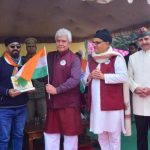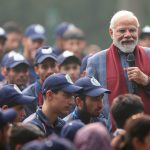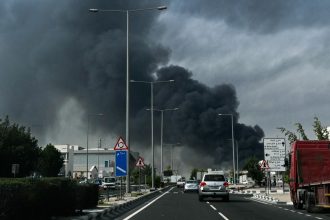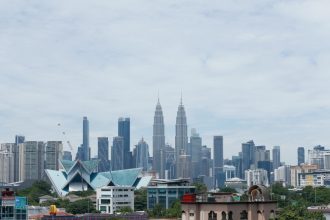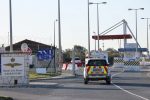Amidst the political landscape of Pakistan, the aftermath of the general election reveals unexpected delays in the vote counting process. Millions of citizens cast their ballots in a closely contested election, where established political dynasties vied for power, against the backdrop of the nation’s former leader remaining incarcerated.
As the polls closed and the anticipation mounted, more than 12 hours passed without any official declaration of results. This delay prompted concerns and calls for transparency from various quarters, including the Pakistani Election Commission. Despite assurances of immediate result declaration, the uncertainty surrounding the electoral outcome persisted.
The election, which had been postponed for several months, unfolded against a backdrop of numerous challenges facing the nation. Pakistan, with its 220 million-strong population, grapples with economic instability, escalating violence, and natural calamities that disproportionately affect vulnerable segments of society.
Political contenders weighed in on the unfolding situation. Bilawal Bhutto Zardari, the prime ministerial candidate of the Pakistan People’s Party (PPP), expressed cautious optimism about the preliminary results, indicating positive outcomes for the candidates associated with his party. Meanwhile, the party of imprisoned former prime minister Imran Khan, the Pakistan Tehreek-e-Insaf (PTI), raised concerns about potential manipulation of results by the government.
Security concerns loomed large over the electoral process, with incidents of violence reported in various parts of the country. Twin bombings targeting campaign offices in Balochistan underscored the volatility of the political landscape. Additionally, terrorist incidents in regions like Khyber Pakhtunkhwa and Balochistan posed significant challenges to voter safety and security.
Heightened security measures were implemented nationwide to safeguard the voting process. The deployment of over 650,000 security personnel, including military and civil forces, aimed to ensure the protection of polling stations and voters. However, reports of Taliban fighters overrunning voting locations in Khyber Pakhtunkhwa raised further concerns about the integrity of the electoral process.
Amidst the unfolding events, the temporary suspension of mobile internet access across the country sparked controversy. Critics viewed the move as a politically motivated attempt to suppress dissent and hinder transparency during the election. Organizations like Amnesty International and the Committee to Protect Journalists (CPJ) denounced the internet shutdown, emphasizing the importance of digital access in upholding democratic principles.
As the nation grapples with political tensions and security challenges, international observers, including the United Nations Office of the High Commissioner for Human Rights (OHCHR), called for a free and fair electoral process. However, concerns about pre-poll rigging and allegations of military interference continue to cast a shadow over the credibility of the election.
Against this backdrop, the political fate of Pakistan hangs in the balance. With key figures like Imran Khan and Nawaz Sharif shaping the electoral narrative, the outcome of the election holds significant implications for the country’s future trajectory. As Pakistan navigates through this critical juncture, the quest for democracy and accountability remains paramount.

